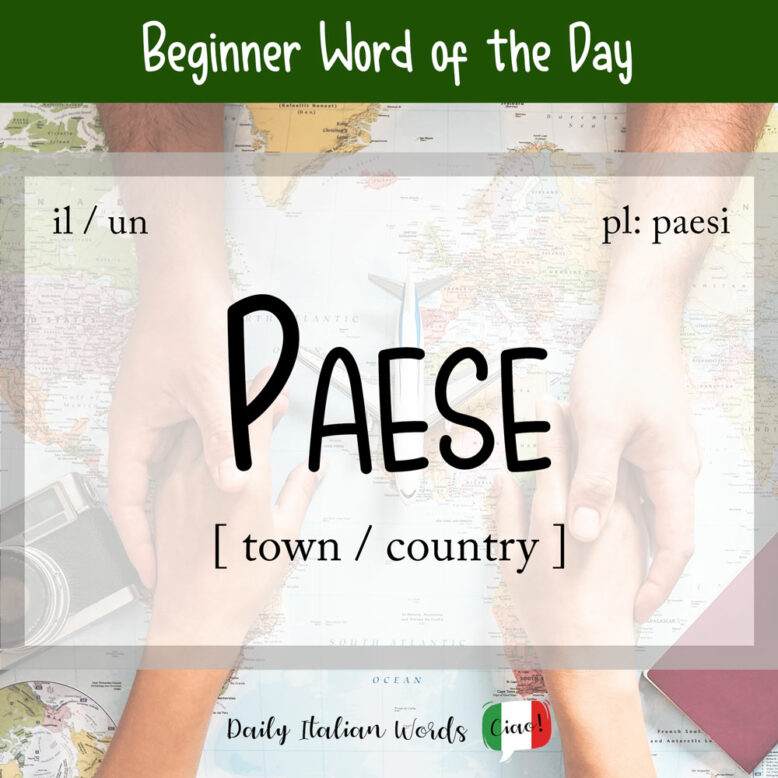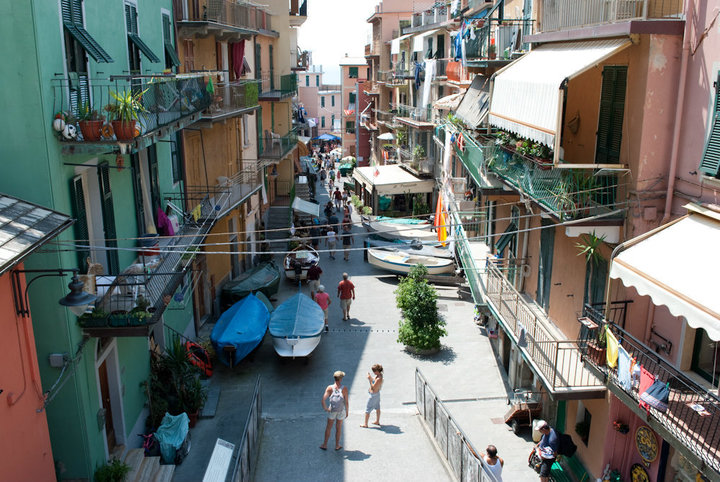I’ve always found it fascinating that the word paese (masculine, plural: paesi) in Italian can refer to one of the largest places where people live (country or nation), as well as one of the smallest (town or village).

Whether you mean one or the other is explicated by the context, as you can see by comparing the two examples below.
L’Italia è un paese meraviglioso.
Italy is a marvellous country.
Cantalupa è un paese vicino a Torino.
Cantalupa is a town close to Turin.
Sometimes in writing, people will capitalise Paese to clarify that the subject is a country rather than a town.
If you feel the need to add extra clarification, you can always resort to synonyms such as nazione (nation), stato (state), borgo (historical village) or paesino (little town).
- Adoro il mio paese. (I love my country.) > Adoro la mia nazione.
- Adoro il mio paese. (I love my town.) > Adoro il mio paesino.

Manarola is a seaside town in Liguria.
Paese can also denote the occupants of a nation or town.
Tutto il paese è andato alla festa.
The whole town went to the party.
Some other words related to paese include:
- paesaggio = landscape
- paesone = large town/village
- paesello = small village
The adjective paesano can be used in multiple ways: it can refer to the inhabitant of a town, describe something related to the town, or signify something rustic, rural, or simple in more general terms.
Note that although the word villaggio exists in Italian, it is used less to talk about modern towns and villages and more to describe tourist resorts (villaggio turistico) or holiday villages (villaggio vacanze). If you do hear it used to talk about a town, it will often be in a historical context.
Idioms featuring ‘paese’
Tutto il mondo è paese.
Literal translation: The whole world is a town.
English meaning: It’s the same the world over.
Mandare (qualcuno) a quel paese
Literal translation: To send (someone) to that town.
English meaning: To tell someone to get lost.
Paese che vai, usanze che trovi.
Literal translation: Country you go (to), customs you find.
English meaning: When in Rome do as the Romans do.
Heather Broster is a graduate with honours in linguistics from the University of Western Ontario. She is an aspiring polyglot, proficient in English and Italian, as well as Japanese, Welsh, and French to varying degrees of fluency. Originally from Toronto, Heather has resided in various countries, notably Italy for a period of six years. Her primary focus lies in the fields of language acquisition, education, and bilingual instruction.


